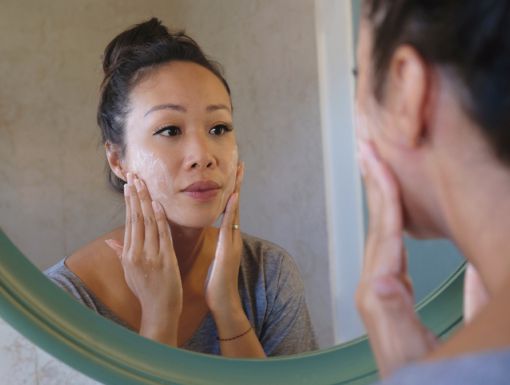
What Does Retinol Do for Your Skin?
Age defiance is a common pursuit in our culture. Many of us seek to turn back the clock to a time when our skin had a radiant glow, unmarked by the fine facial lines that began to appear after a certain number of birthdays.
This pursuit is what has made retinol one of the most popular skin care formulas on the market.
A topical derivative of vitamin A, retinol reigns above the many serums that claim to enhance the skin’s appearance. It is a cosmeceutical, a marriage of cosmetic and pharmaceutical products, and can be purchased over the counter at local or online retail stores.
Added to skin creams and lotions that are available over the counter, retinol has anti-aging effects and can help clear acne. It works by boosting skin cell and collagen production, unclogging pores, and exfoliating the skin.
What is retinol and how does it work?
Hailed by many as a cure-all for skin problems, retinol is a weaker version of retinoid, another chemical compound related to vitamin A.
Retinoids aren’t some new-fangled, anti-aging potion. The U.S. Food and Drug Administration approved a form of retinoid – tretinoin -- as a topical acne treatment in 1971, according to the American Academy of Dermatology.
Dermatologists quickly realized retinoid’s anti-aging properties, which include improving skin tone and reducing fine lines and wrinkles by changing the way skin cells function.
It is now considered by most experts to be the gold standard ingredient in skin care products. When applied, small retinol molecules penetrate the epidermis, or top layer of skin. In doing so, retinol neutralizes free radicals and prompts cell turnover in surface skin, allowing new cells to grow underneath. It also can lessen skin hyperpigmentation and reduce sebum/oil production.
This altering of the way aged skin cells behave has the effect of making them appear more youthful and reducing the uneven texture of the skin’s surface.
Retinoids, being more potent, are typically only available by prescription. These include medications such as tretinoin, tazarotene, adapalene and trifarotene. There is an over-the-counter retinoid now available (adapalene 0.1% gel).
Skin care experts say patients using retinol or retinoids for the first time will need to be patient. It can take anywhere from a few weeks to six months to notice a difference. Faster improvement to treat severe acne and other skin conditions may require prescription-strength retinoid. A dermatologist can help determine which form is right for you.
Is retinol right for you?
The American Academy of Dermatology says people who have skin allergies or excessively dry skin may not be well suited for a product that contains a retinoid.
People of all skin colors can benefit from the anti-aging properties of retinols and retinoids. Those with darker skin types need to be especially careful about whether a retinoid-based product is causing irritation, since irritation can result in hyperpigmentation in skin of color.
To help avoid skin irritation, some experts recommend that patients start off using the least-potent retinoid formula available. They should apply it every other night initially before slowly building up to daily use. The retinoid can also be mixed with a fragrance-free moisturizer and then applied to the skin for patients with especially dry or sensitive skin.
It’s important to know that retinoids can make skin more sensitive to sun. Patients are advised to apply it only at night and always use sun protection during the day, which of course is good advice for everyone.
With so many retinol products to choose from, it can be difficult to choose which one is right for you. The labels of some over-the-counter products do not indicate the potency level, making selection a bit tricky.
If you’re considering using a retinol product, it’s a good idea to talk to your dermatologist about what formula may work best for you.
Learn more about dermatologist Kelli Hall, MD.



